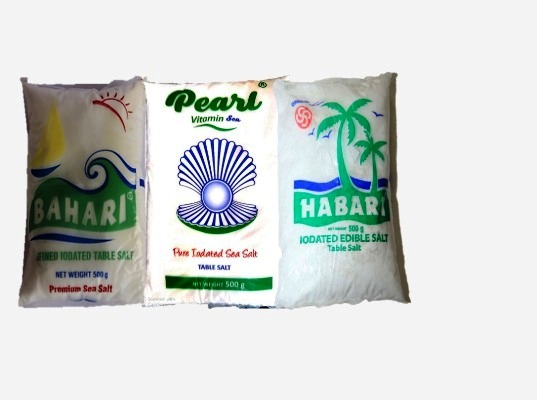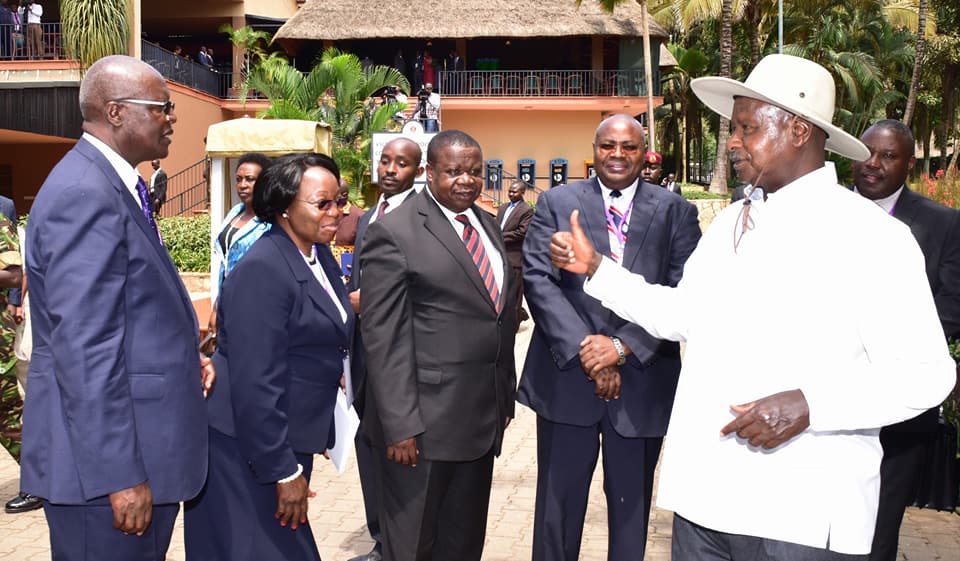Last week, Kilak North County Member of Parliament, Gilbert Olanya made a serious allegation on the floor of Parliament; that a salt product had hit his constituency and was threatening the lives of his people.
Olanya noted that it had been brought to his attention by his constituents that Pearl Salt was not only tasteless, but also doesn’t dissolve.
He claimed that one has to pour huge quantities of the salt brand in question in the food in order to get the preferred taste compared to other brands in the market.
At this point, the Deputy Speaker Jacob Oulanyah asked the FDC MP to bring salt as evidence as opposed to packaging materials, but the lawmaker insisted that many of his area residents are worried about the salt.
“Mr. Speaker, the complaint of the community is that this salt has particles that do not dissolve in water. Two, the salt is tasteless. You may add large quantities but it does not taste like the salt we eat every time,” Olanya submitted.
However, Jacob Oulanyah objected his submission, saying that the legislator needed to table evidential value owing to the fact that the problem at hand is the salt not the packet.
He also advised him to avail samples of the additive to responsible bodies such as Uganda National Bureau of Standards (UNBS) for quality testing. This is not the first time the legislator is raising the matter.
Olanya came up with similar allegations as soon as he entered Parliament in 2016 for reasons best known to him.
Considering the fact that this is now a public concern and journalists must at all times serve the interests of the same people that politicians represent, the Independent Online Journalists Association-Uganda (indoja-U), a body that brings together online journalists in Uganda decided to carry out investigations on the matter.
Genesis Of The Business Rivalry, Sabotage
Our investigations reveal that there’s unprecedented rivalry between two slat brands; Habari Salt and Bahari salt.
The battle is akin to the one between Sadolin and Plascon that resulted from Japanese paint company, Kansai Plascon, buying off Sadolin Paints East Africa, which for over 50 years held the license for Sadolin Paints, a brand of Akzo Nobel from the Netherlands.
It is understood that Habari salt brand initially belonged to Dr. Hasmukh Dawda’s House of Dawda (Uganda) and House of Manji (Kenya). His salt company, Mombasa Salt Works was based in Mombasa Kenya which he started in 1975.
However, in 2007, he sold his Habari salt brand to Crystalline Salt Company belonging to another business man in Mombasa Kenya.
Thereafter, he came up with two new Brands; BAHARI and PEARL salt. The two brands belong to one Okapi Trading Co.Ltd, which is under House of Manji (Kenya) and House of Dawda(Uganda).
Considering the fact that Dawda had been in the market for decades, it was easy for him to market his new brands and even surpass the pioneer Habari brand which he had marketed himself.
He had all the market intelligence on his fingertips.
However, this didn’t go down well with the new Habari owners and distributors because Bahari and Habari have close similarities in name and branding.
This caused anxiety since customers who are not very vigilant can easily buy the other brand when he/she meant to buy the other.
A source told us that Dawda had a better advantage especially in Northern Uganda because he was born and raised up in Lira; he knows most of the market dynamics there.
“He used to distribute aide to the locals including salt during the [LRA rebel leader Joseph] Kony,” the source said.
Both brands have since been competing for market countrywide, which is a healthy practice in business as long as the competition is kept within the right context.
However, after several years, Habari reportedly started losing market share to Bahari.
It is understood that before this negative campaign started in April 2016, Bahari salt brand alone was selling 400 tons (around 14 full truck trailers) of salt per month compared to 100 tons of Habari. This further took the business rivalry to another level.
It is understood that some gullible politicians reportedly hatched a plot to help the Harabri businessman to recapture their ‘market’. This included rallying people especially in Northern Uganda to shun the Bahari and Pearl salt products by crafting messages indicating that the salt was ‘fake’ and unfit for human consumption.
According to our sources, their strategy was that after the MP raising the matter on floor of parliament (campaign started in 2016), where he is protected from legal prosecution, they would now start backing up the campaign with sponsored radio talk shows dubbed ‘Health talk shows’ where they would talk about health matters and then use social media platforms by using some of the media personalities in Northern region to spread the campaign.
Indeed the social media campaign begun on Tuesday this week on some Northern radio presenters’ platforms.
It’s important to note that in 2016, Olanya’s first concern when he entered parliament was the condition of Bahari salt where he claimed that his people had complained about it.
UNBS later took the matter, tested it but found no health problems were associated with it, and since then the salt is still on market.
However, as the road to 2021 elections draws near, the problem has reportedly shifted to Pearl salt.
It is worth noting that although these two brands have been distributed countrywide in Uganda and Kenya for years, it’s only Olanya’s ‘people’ in Northern Uganda that are apparently affected by the salt!
-More details to follow





